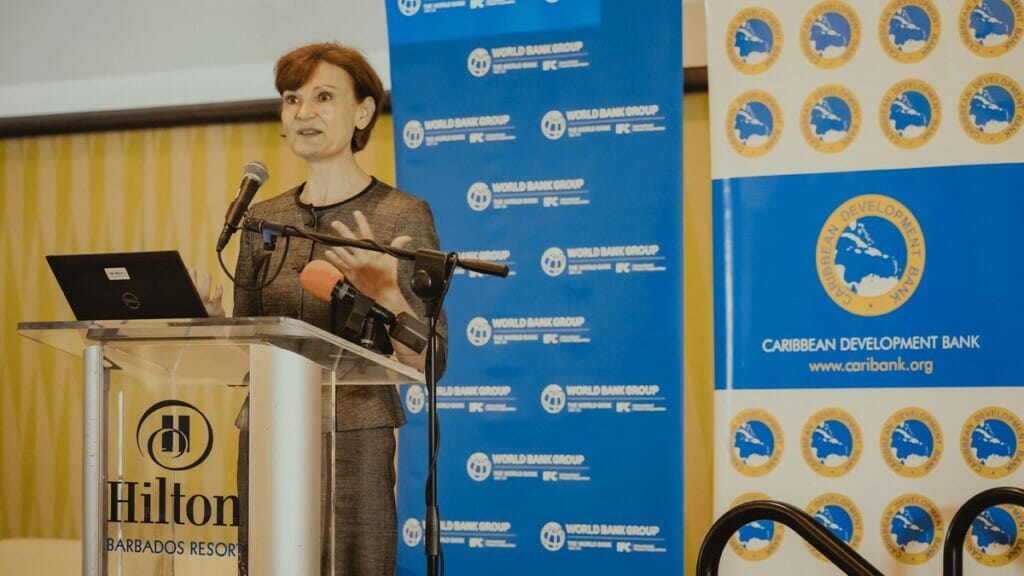According to Barbados Today, a groundbreaking report has shed light on the challenges hindering private sector growth in Barbados and 11 other Caribbean countries. The report, titled the Regional Private Sector Diagnostic (RPSD), was jointly launched by the World Bank Group and the Caribbean Development Bank (CDB) and offers recommendations to stimulate private sector investment and address key vulnerabilities over the next three to five years.
Covering a diverse range of states including Barbados, The Bahamas, Antigua and Barbuda, Belize, Dominica, Grenada, Guyana, St Kitts and Nevis, St Lucia, St Vincent and the Grenadines, Suriname, and Trinidad and Tobago, the World Bank report emphasizes the pressing need to address cross-cutting constraints to foster an environment conducive to trade, investment, and growth.
The report identifies several crucial constraints, including gaps in trade policy, trade facilitation, connectivity, skills mismatches, limited access to finance (particularly for small and medium enterprises), and vulnerability to climate change. In particular, it highlights the necessity of reducing trade costs and logistics frictions to promote trade-led growth in the Caribbean.
Trade barriers such as tariff and non-tariff measures, inadequate trade facilitation, and poor transport connectivity have significantly increased trade expenses and hindered export volumes. The report underlines the urgent need for trade cost reduction and improved logistics to boost regional trade.
Furthermore, the researchers highlight the critical issue of a skills gap, which compromises labor force productivity and firm competitiveness. The transition from agriculture to services has transformed the skill requirements across the Caribbean countries, but the educational system has been slow to adapt. Consequently, there is an unmet demand for workers possessing both technical and soft skills, such as critical thinking, problem-solving, and socio-emotional skills. Brain drain, particularly in countries like Guyana, exacerbates the skills gap.
The report also underscores the vulnerability of the Caribbean region to climatic events, while governments continue to grapple with high debt levels, limiting their ability to develop infrastructure and build resilience against economic and climate shocks.
The study focuses on two key sectors, the digital economy and renewable energy, highlighting how increased private sector investment in these areas can contribute to export diversification, job creation, enhanced productivity, and strengthened resilience against climate change and natural disasters. To facilitate this, governments and the private sector need to promote digital skills and digitize public services, which will incentivize citizens to improve their digital skills.

During the launch event, Lilia Burunciuc, World Bank Country Director for the Caribbean, emphasized the importance of regional linkages, economic diversification, and transitioning towards greener and more inclusive growth. Isaac Solomon, Vice President of Operations at the CDB, concurred and stressed the need for fundamental and structural changes to drive economic growth and development. Recognizing the importance of regional cooperation, the CDB aims to incentivize private finance and facilitate access to funding sources and concessional resources.
Ryan Straughn, Minister in the Ministry of Finance of Barbados, acknowledged the existing skills deficit in the country and the need to enhance understanding of the dynamic private sector among critical departments. Addressing this skills gap is crucial for Barbados to progress.
Among the report’s numerous recommendations are the harmonization of investment regimes to promote and facilitate investments in the region, a reduction in common external tariffs to enhance competitiveness by decreasing the cost of importing capital and intermediate goods, and the streamlining and harmonization of non-tariff measures to reduce trade and investment frictions and enhance connectivity.
The RPSD also calls for the establishment of national and regional trade facilitation committees, the digitization and simplification of trade procedures, and improvements in air and marine cargo shipping to increase supply and efficiency.
To bridge the skills gap and align the educational system with market demands, the report recommends expanded access to tertiary education, improved quality of secondary education, and a reduction in the mismatch between demand and supply of skills.
Furthermore, the report emphasizes the need to facilitate access to finance for small and medium-sized enterprises, develop high-quality and affordable digital infrastructure, implement country-specific transaction models, and enhance system planning and grid infrastructure for better integration of renewable energy and climate resilience.







